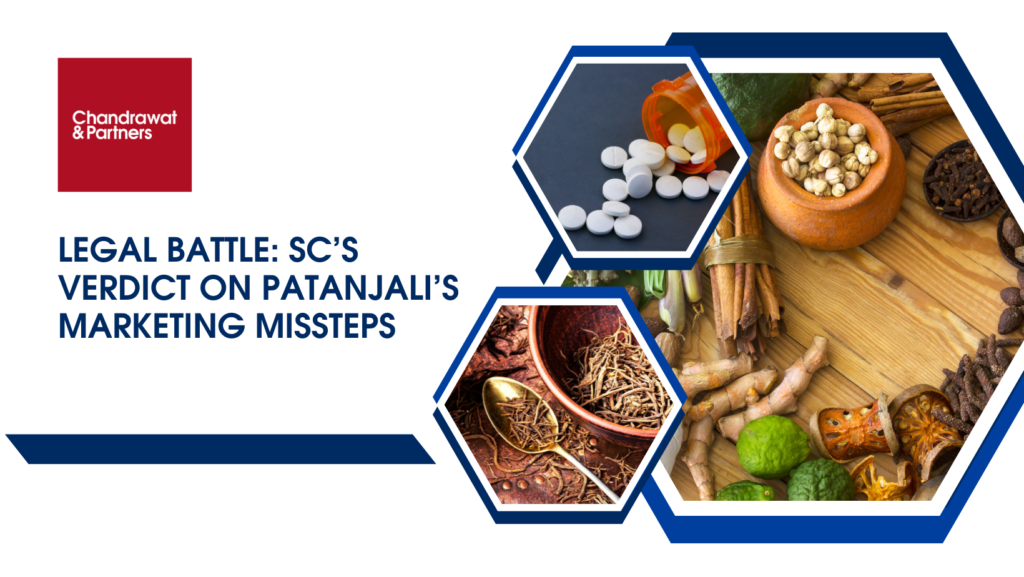Share :
Introduction
On February 27, 2024, the Supreme Court of India issued a significant ruling against Patanjali Ayurved, a prominent Indian company dealing in Ayurvedic products. The court restrained Patanjali from advertising or branding its products as treatments for specific diseases, disorders, or conditions. This decision came in response to concerns that Patanjali’s advertisements misled consumers by making exaggerated claims about the efficacy of their products.
BACKGROUND
This action by the Supreme Court is part of a larger legal framework in India aimed at regulating the advertising of drugs and medical claims. The Drugs and Magic Remedies (Objectionable Advertisements) Act, 1954 (“DMR Act”) prohibits advertisements that:
- Falsely claim to be a specific cure or remedy for any disease, disorder, or condition.
- Use testimonials that are misleading or likely to create an unfair advantage in competition.
- Contain exaggerated claims that are not supported by scientific evidence.
KEY INSIGHTS FROM THE COURT’S RULING
The Supreme Court expressed strong disapproval of Patanjali’s advertising practices, stating that the company had “taken the entire country for a ride.”
- The court noted that Patanjali had previously promised to comply with the DMR Act and refrain from making misleading claims about its products.
- The court issued notices to Patanjali Ayurved and its managing director, asking them to explain why contempt proceedings (legal action for disobeying a court order) should not be initiated against them for violating their undertaking.
- The court restrained Patanjali from advertising or branding its products in a way that suggests they treat specific medical conditions.
IMPLICATIONS OF THE DECISION
This decision has several important implications:
- Protects consumers:It helps to ensure that consumers are not misled by false or exaggerated claims about the effectiveness of Patanjali’s products.
- Promotes fair competition:It creates a level playing field for all companies in the market by preventing any one company from gaining an unfair advantage through misleading advertising.
- Raises awareness:It raises awareness of the DMR Act and the importance of truthful and ethical advertising practices.
CONCLUSION
The Supreme Court’s decision is a significant step towards ensuring transparency and consumer protection in the Indian market. It highlights the importance of companies adhering to established laws and regulations, particularly when dealing with claims related to health and well-being. Consumers are encouraged to be informed and critical of any claims made in advertisements and to consult with qualified healthcare professionals before purchasing any product, including Ayurvedic remedies.
For more information or queries, please email us at
[email protected]




